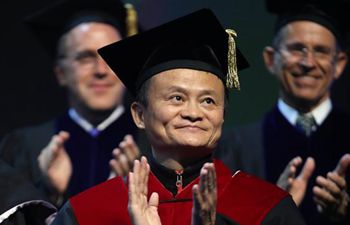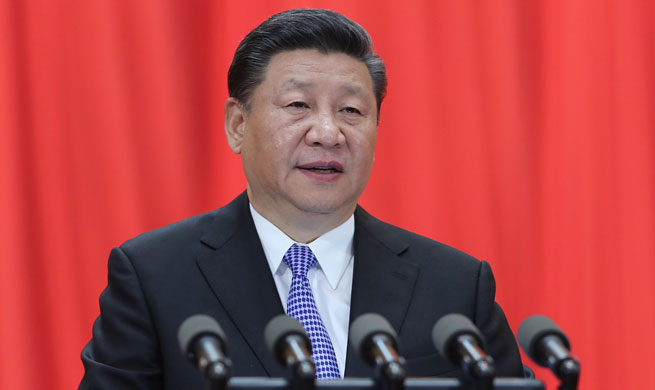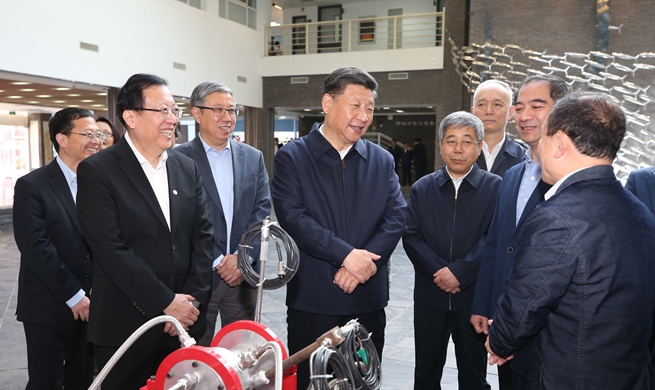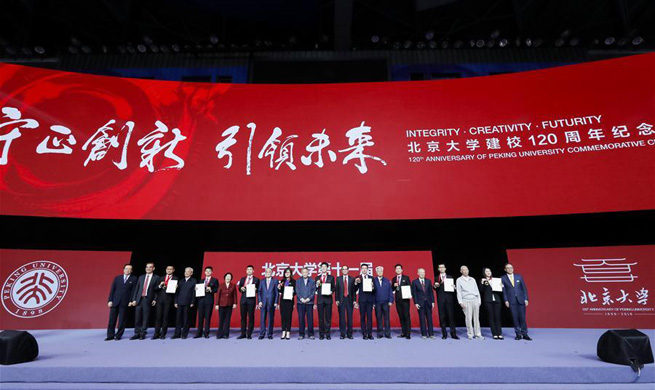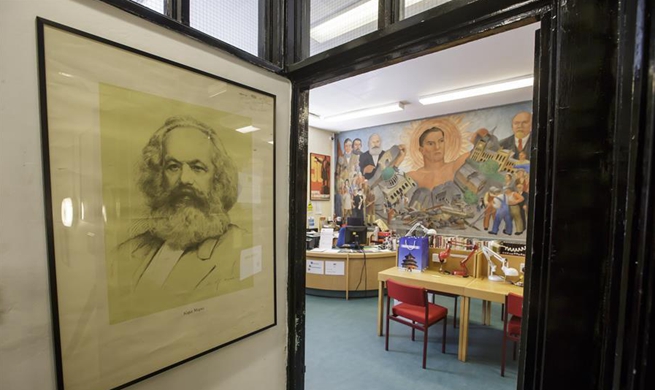BRUSSELS, May 4 (Xinhua) -- The European Union (EU) and the United States will continue negotiations over U.S. import duties on steel and aluminum after Washington recently announced that it will extend the deadline until June 1 for talks with trading partners.
Observers said the EU does not agree with an alternative measures to avoid the metal tariffs. At the same time, the bloc is unhappy about the threat posed by the U.S. over negotiations. The negotiations have reached an impasse, and uncertainty will continue.
DISAGREE WITH VERS
Daniel Gros, director of the Brussels-based think tank, the Center for European Policy Studies (CEPS), told Xinhua that the U.S. has proposed that the EU accepted the "voluntary export restraints" (VERs) for steel and aluminum as a condition for permanent exemption on the metal tariffs.
"But this type of agreement is no longer allowed under the WTO. How can the EU agree to something which is illegal?" said Gros.
Such measures are voluntary in form, but they are essentially mandatory. In the 1980s, Washington used this mechanism to restrict steel and automobile exports to the United States.
If exporters do not agree to "automatically" reduce exports to the U.S., Washington will then introduce high and daunting tariffs. In later World Trade Organization (WTO) talks during the Uruguay Round, all members agreed to phase out voluntary export restraints, and eventually repeal them completely.
It has been reported that EU Trade Commissioner Cecilia Malmstrom has made it clear to the U.S. that the EU will not agree to use VERs in exchange for tariff exemptions on aluminum and steel.
The EU said that it expected a permanent waiver, and claimed that the tariff measures had extended market uncertainty, affecting global trade flows.
UNHAPPY ABOUT THREAT
The EU has expressed dissatisfaction with the U.S. making use of threats to promote negotiations.
The EU issued a statement following the latest U.S. announcement, saying that the EU is willing to discuss market access issues that are of interest to both parties, but it will not negotiate under threats.
"Any future transatlantic work plan has to be balanced and mutually beneficial," it said.
Media reports claimed that the U.S. is eagerly to reaching a trade agreement with the EU on auto tariffs.
Lawrence Kudlow, Director of the U.S. National Economic Council, said that President Donald Trump hopes the EU will make concessions on the issue of auto tariffs. There are also reports that Trump wants the EU to raise quotas for U.S. beef imports.
Observers said that despite the EU's open attitude toward negotiations on transatlantic market access, the EU is fully aware of U.S. leverage on aluminum and steel tariffs. In such a situation, any negotiations on transatlantic market access could not be equal and reciprocal.
Leaders in France and Belgium have stated that the EU will not negotiate trade deals with a gun to the head.
EU Trade Commissioner Malmstrom also reiterated it to the U.S. side and argued that the EU must ensure an unconditional permanent exemption from U.S. aluminum and steel tariffs before talks on market access.
Trump, in March, decided to impose a 25-percent tariff on imported steel and 10-percent on aluminum due to "national security" issue.
Fredrik Erixon, director of Brussels-based think tank, the European Center for International Political Economy, said that, in fact, some economies such as the U.S. and the EU have no trade inequality issues for aluminum and steel, and they will not cause national security problems.
The U.S. government's use of tariffs as a bargaining chip to seek benefits from other countries is seen as bullying behavior by trade partners.
According to EU estimates, the proposed tariffs on aluminum and steel would involve exports of 5.3 billion euros (6.3 billion U.S. dollars) in the European steel industry, and 1.11 billion Euros in the European aluminum industry.
Previous media reports have also stated that the European Commission has drawn up a retaliatory taxation list that could impose a 25 percent tariff on goods such as Harley Davidson motorcycles, bourbon and blue jeans.




